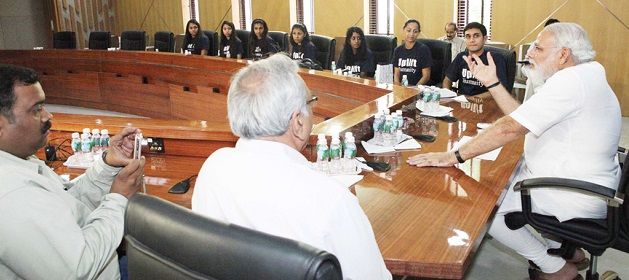Modi-US Relations: On-Track but Frosty

Given the degree of antipathy that the current US administration has demonstrated towards Narendra Modi and the frostiness of the Modi-Powell meeting earlier this year, it will take more than a congratulatory phone call from President Obama and an oral invitation to visit the US, to bring about a thaw in the personal relationship.
Background
The American administration refused to issue Indian Prime Minister-elect, Narendra Modi, a visa to visit the US in 2005. This was because, it was implied, he did little to prevent the deaths that occurred during riots between Hindus and Muslims in the state of Gujarat in 2002. In the wake of Modi’s election win last week, however, Obama reportedly telephoned to congratulate him and invite him to visit the United States.
Comment
The Obama administration appears to be on the back foot in its relations with Modi. Having denied him a visa in 2005 and then continued the ban in 2012, it sought to repair the relationship earlier this year. Then US Ambassador to India, Nancy Powell, met Modi in February. The meeting was described as frosty. While the visa issue was not discussed, Modi is said to have castigated the US over the Devyani Khobragade affair, leaving embassy officials “rattled”. The meeting, moreover, was delayed for some months before Modi consented to it. In March, therefore, Powell resigned, having virtually become persona non grata.
There are also allegations that Modi and his advisers were angry with officials at the US embassy in New Delhi for agreeing to deny him a visa, in response to requests by UPA politicians in New Delhi and some evangelical leaders and Indian-Americans, who held him responsible for the riots. That anger was probably compounded when Obama invited Uhuru Kenyatta to a US-Africa summit in the US in August last year. Kenyatta has been charged by the International Criminal Court with political violence after the 2007-08 elections in Kenya. The Obama Administration, moreover, retains its relatively close ties with King Abdullah of Saudi Arabia, a state that denies non-Muslims the most basic religious freedoms.
In contrast, the UK High Commissioner to India met Modi in late 2012, as did the Bangladeshi High Commissioner a few months earlier. The Russian Ambassador publicly congratulated Modi on his third election victory as Chief Minister in 2012 and the German Ambassador met Modi in early 2013. Modi has had a good relationship with China for a long time and shows every sign of furthering that relationship; he also favours trade links with Japan. Israel, Canada and Denmark have also sought to enhance their relationships with Modi. Significantly, during that period the US avoided contact with him.
Given this background, it is difficult to see how a single phone call from the US President and an invitation to visit the US will change Modi’s perception of the current administration. There is little doubt that India and the US are natural allies and that economic ties will continue to grow under a Modi Government: his government will undoubtedly emphasise economic and trade links. On the other hand, however, there is every chance the US will find it difficult to reach him politically. Modi has made it clear he has no particular desire to visit the US, save to visit the United Nations in New York. He may as well have added the caveat, “…while Obama remains President”. It appears that Modi may well work with a different Democratic President or, preferably, a Republican one, given the efforts the Republicans have made to maintain a friendly relationship with him.
Immediately prior to the Indian elections, the Obama Administration reportedly signalled its willingness to change course, saying it ‘look[s] forward to engagement with the new government’. This, like Obama’s phone call and invitation, is hardly likely to placate Modi. If his government does align with the US politically, it will be because that alignment suits India’s agenda.
While a Modi Government will welcome investment from US firms, it is likely that the current US administration will continue to be held at arm’s length.
Lindsay Hughes is a Research Assistant at the Indian Ocean Research Programme at Future Directions International. The author can be contacted at lhughes@futuredirections.org.au
This article was originally published by Future Directions International. It is republished with permission.


